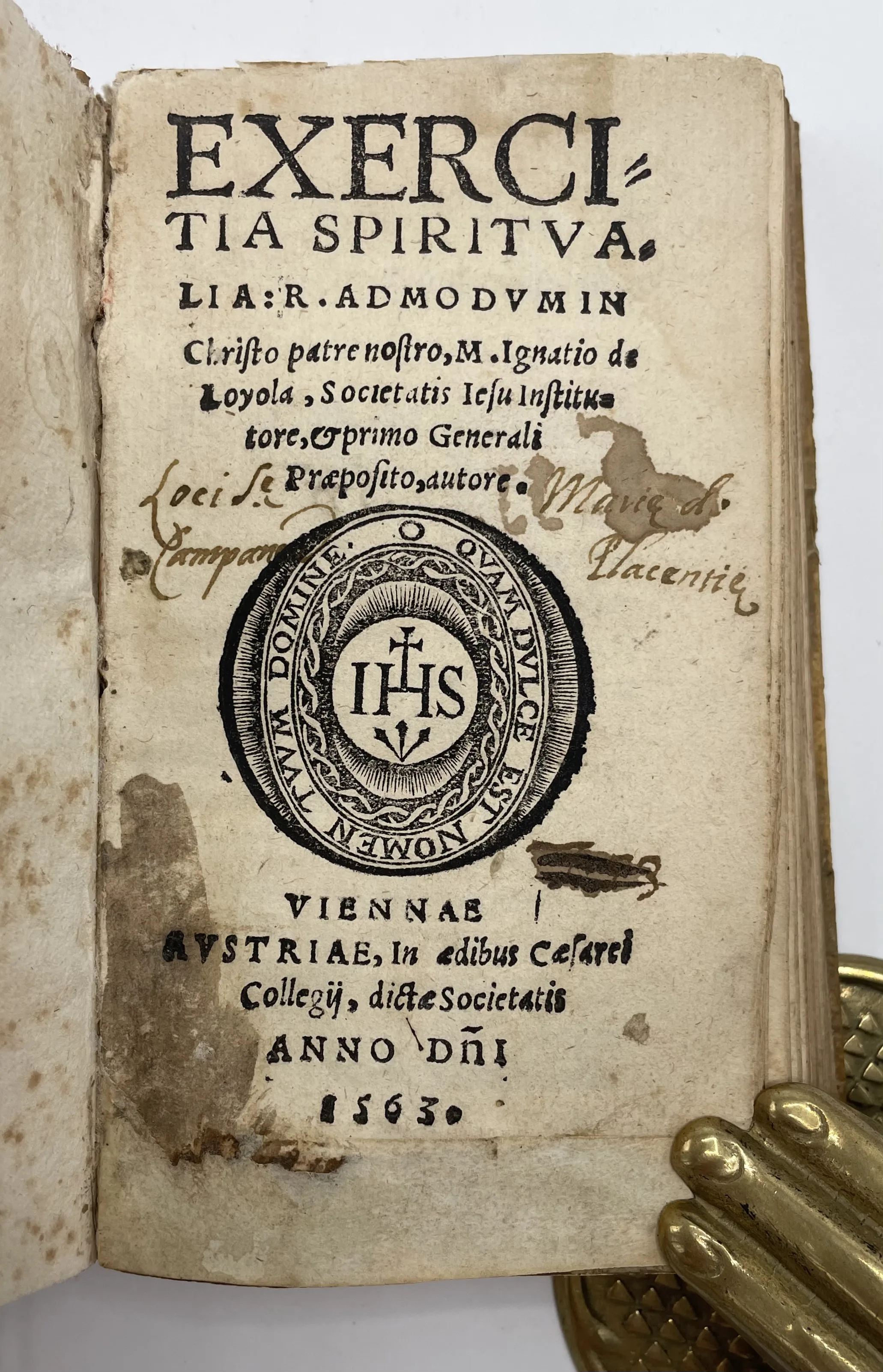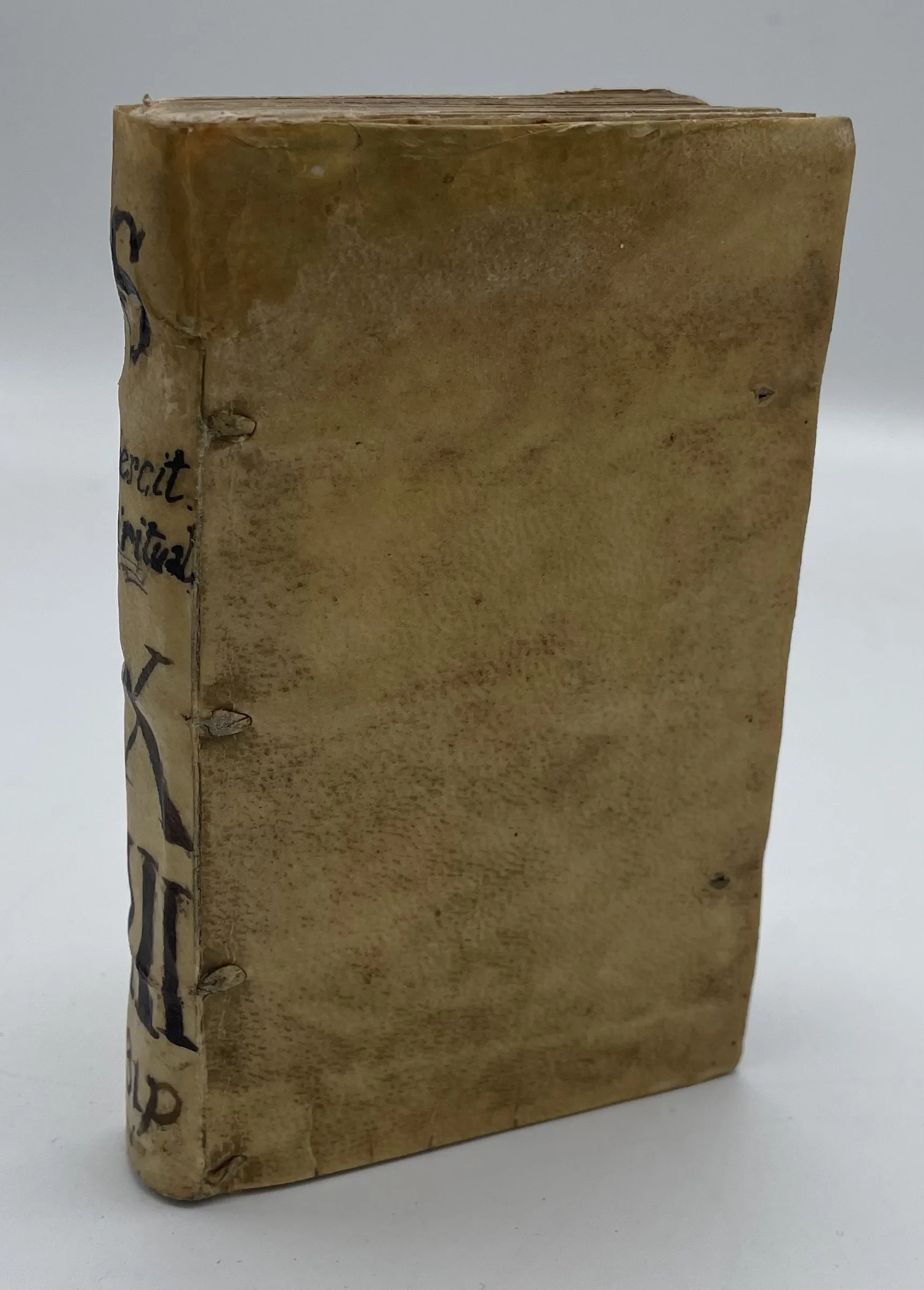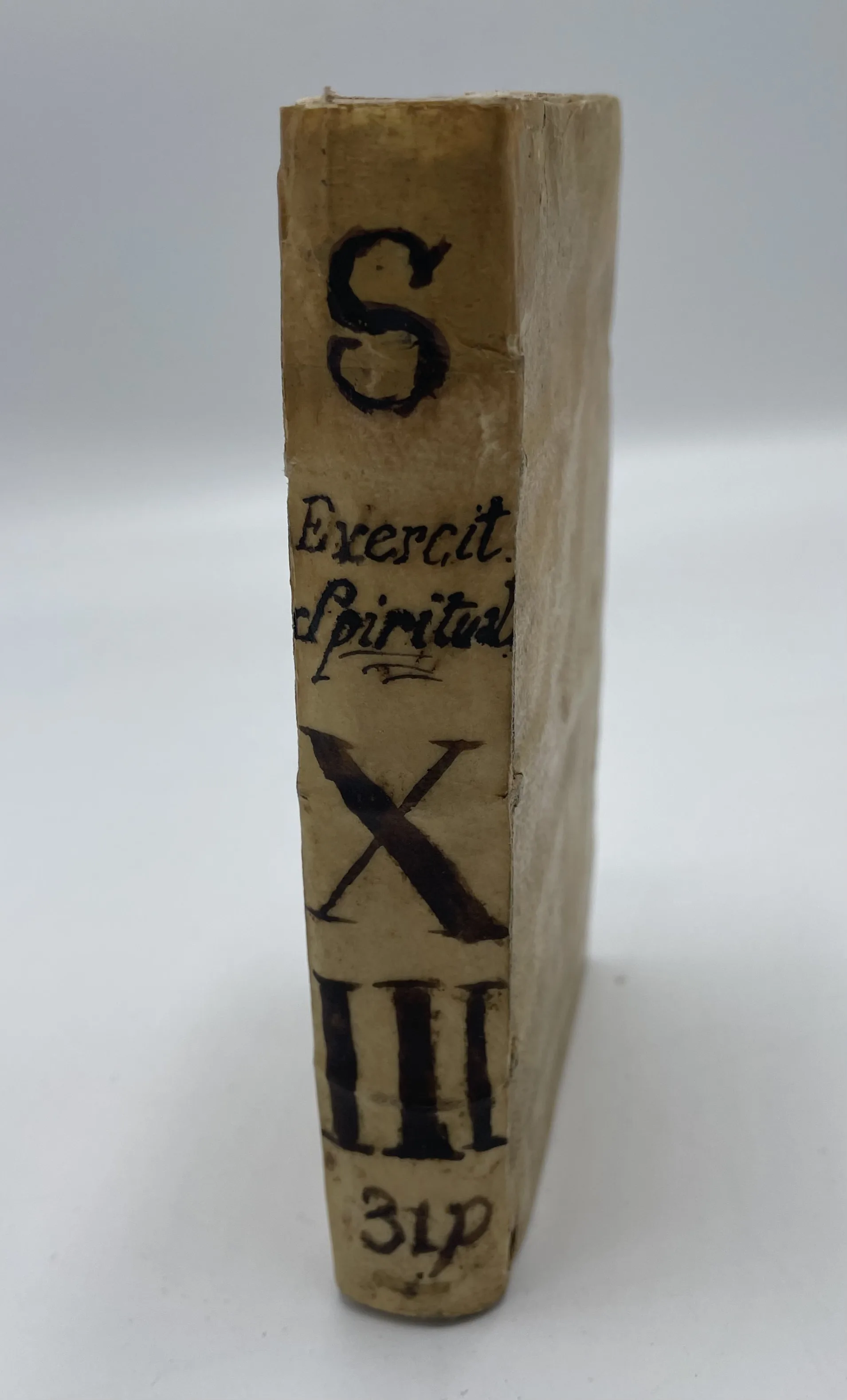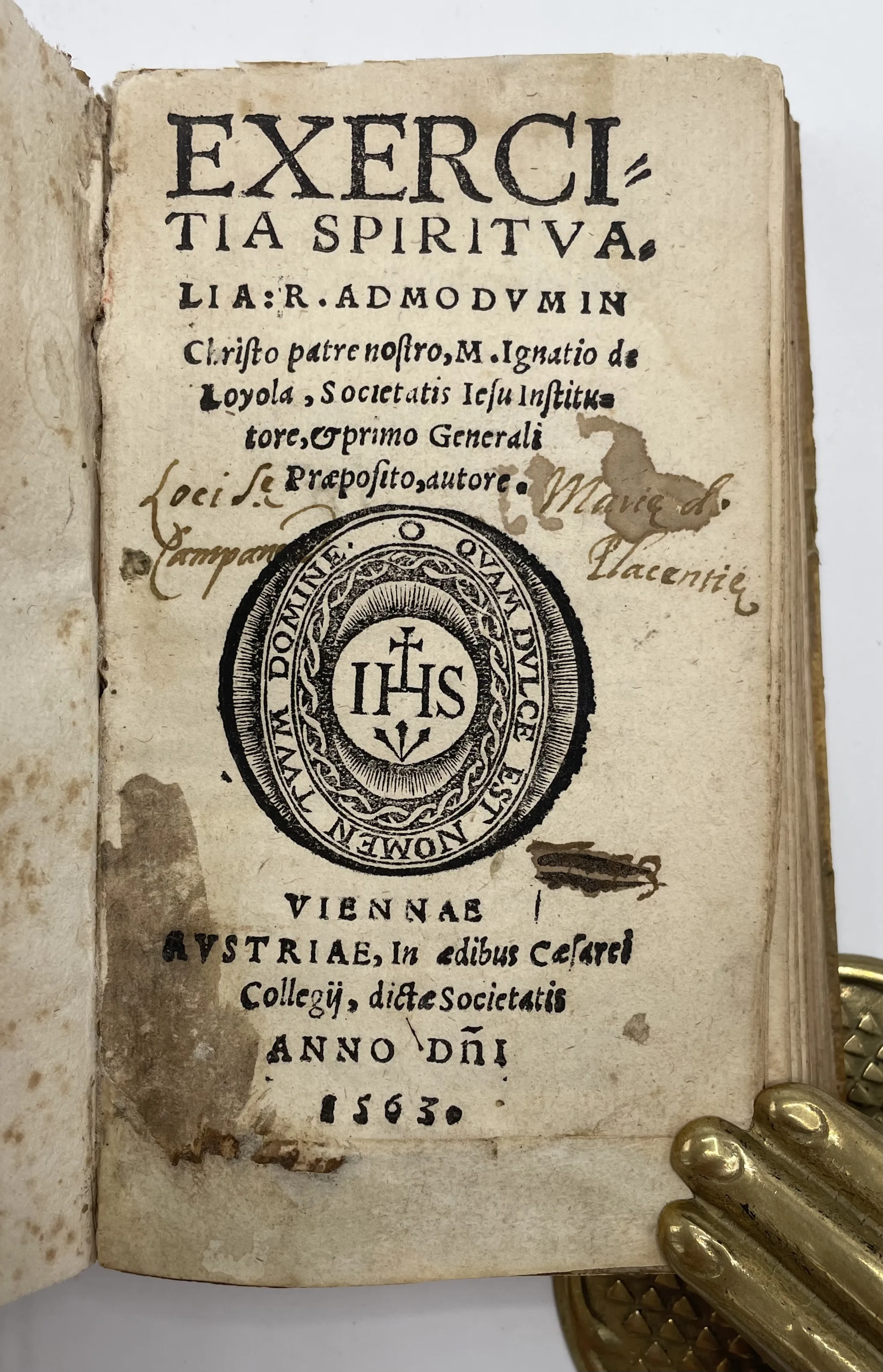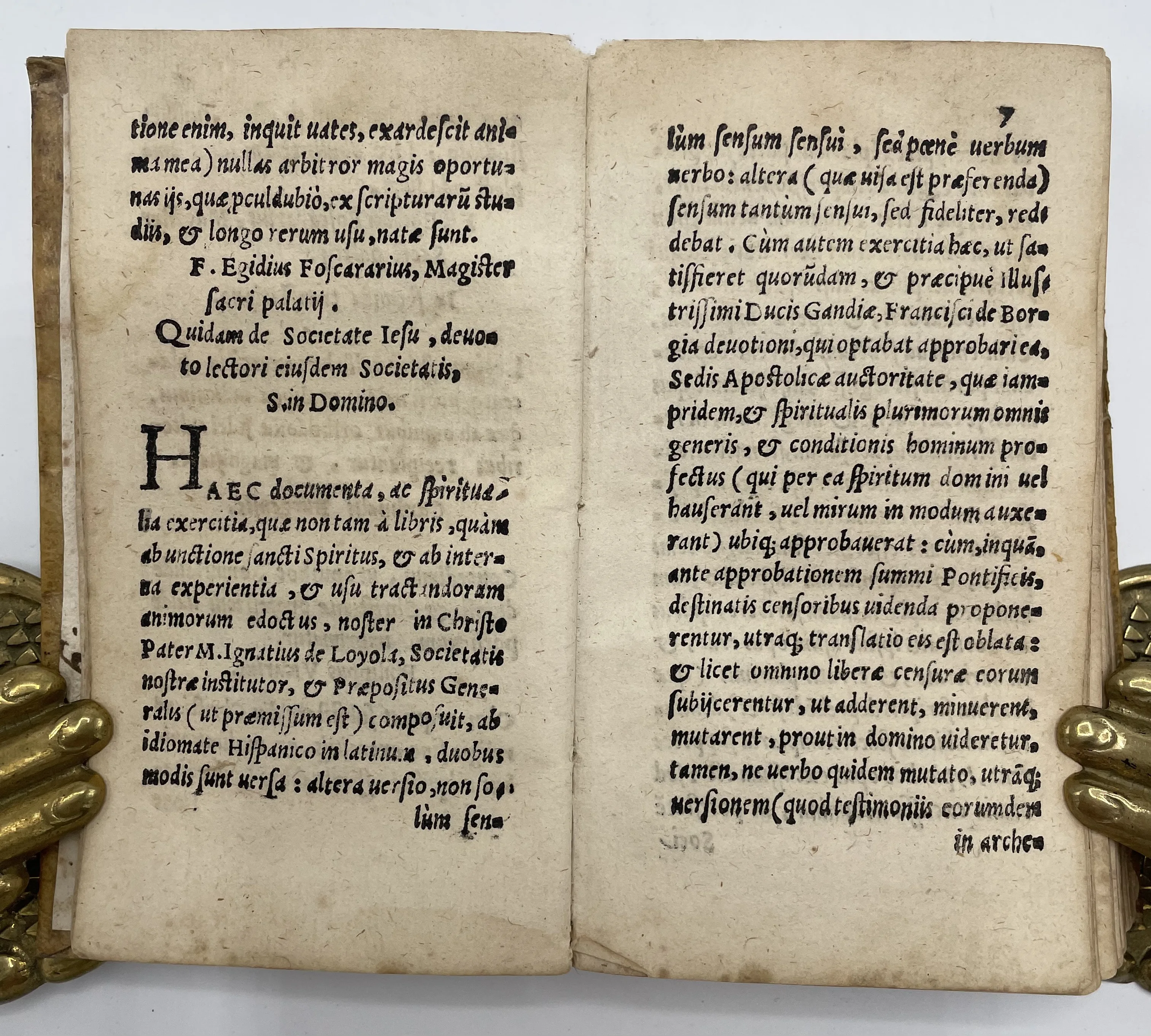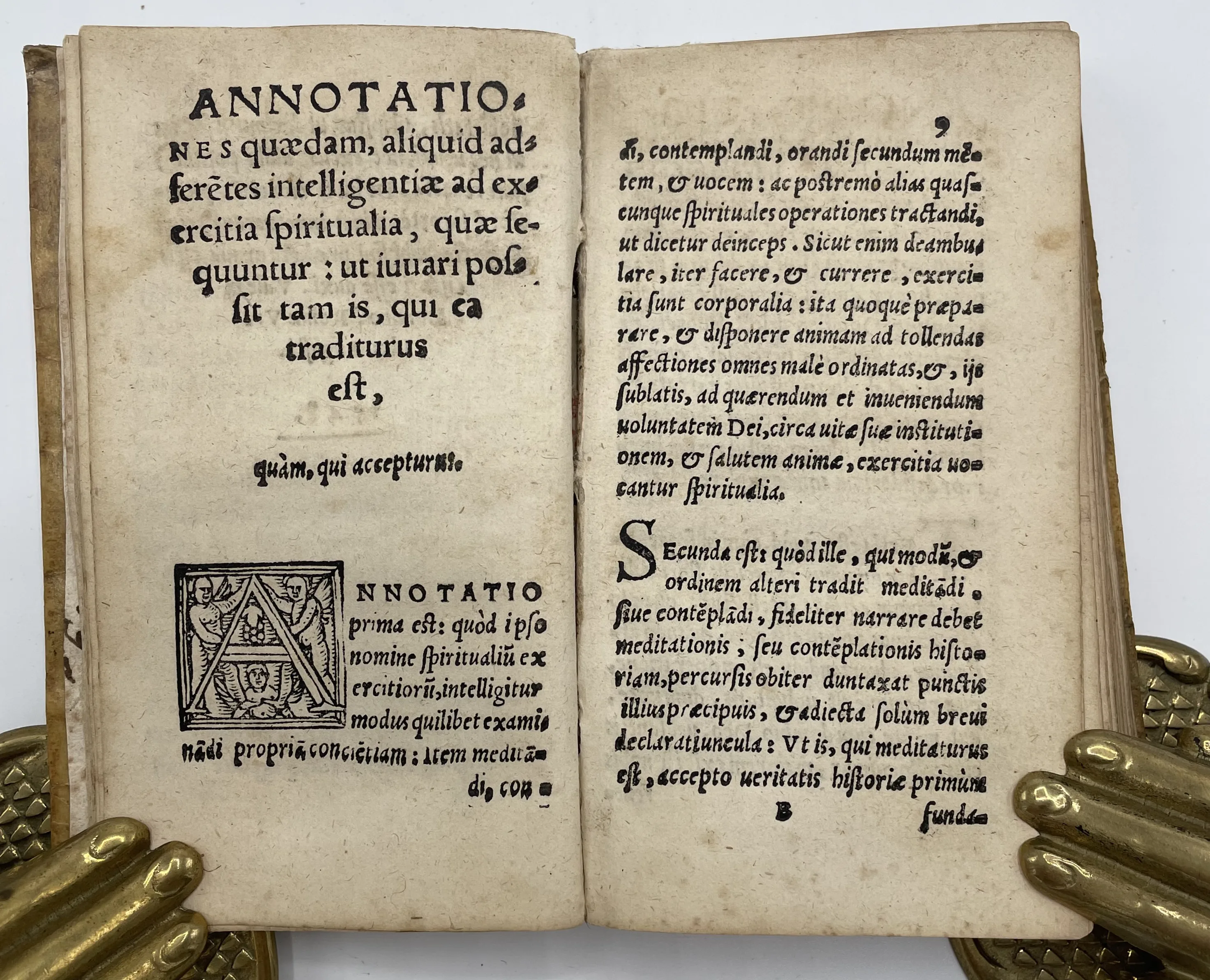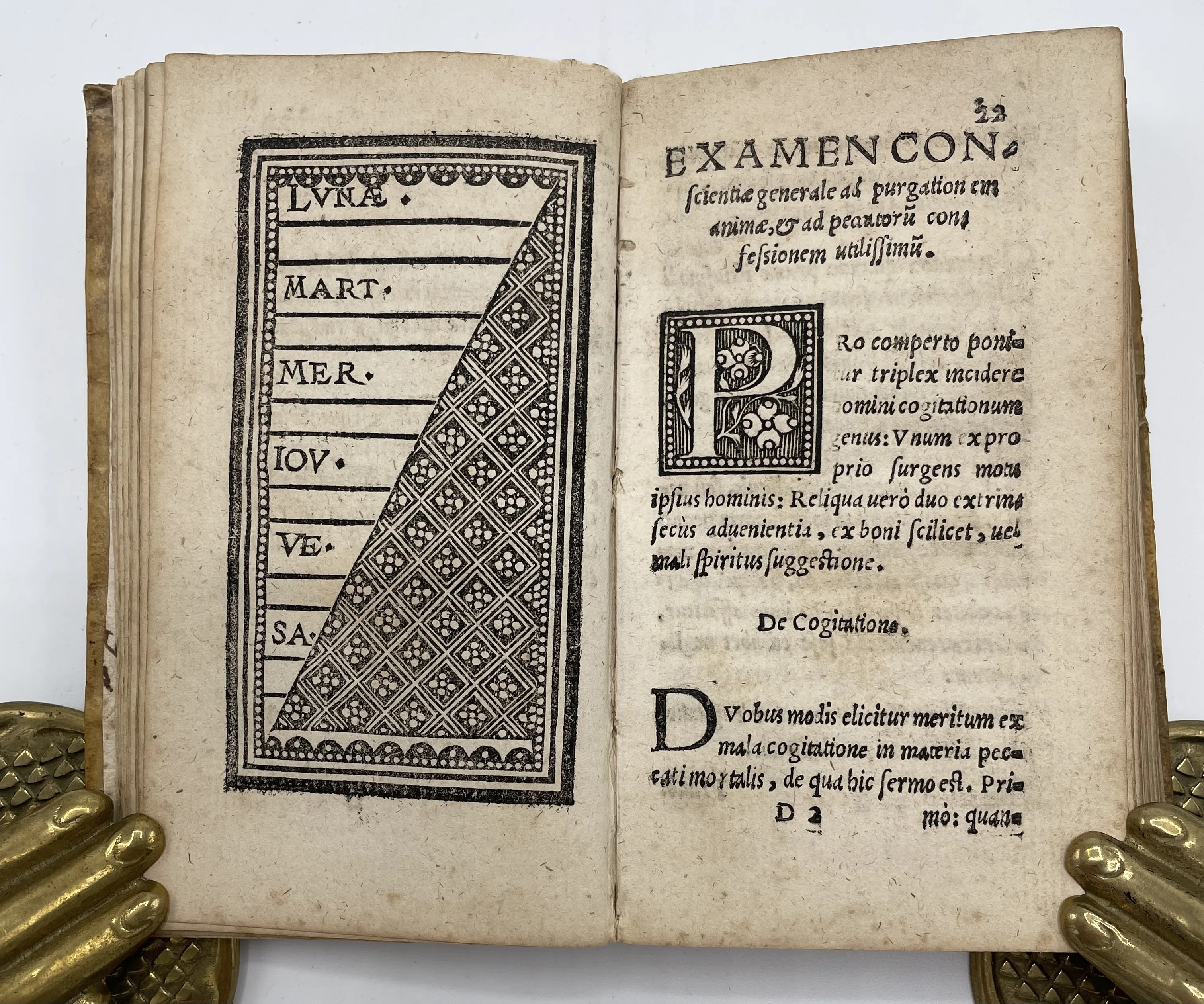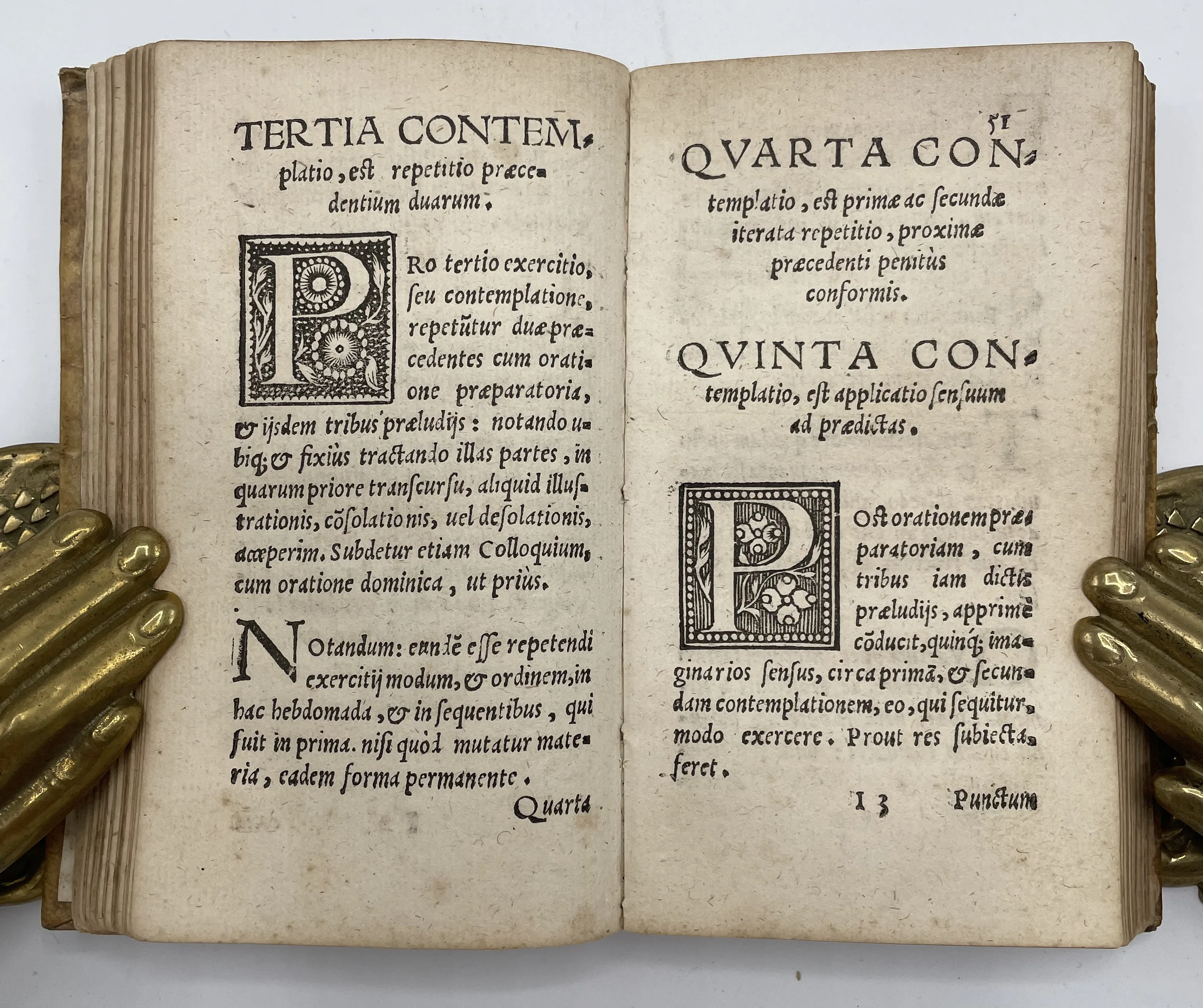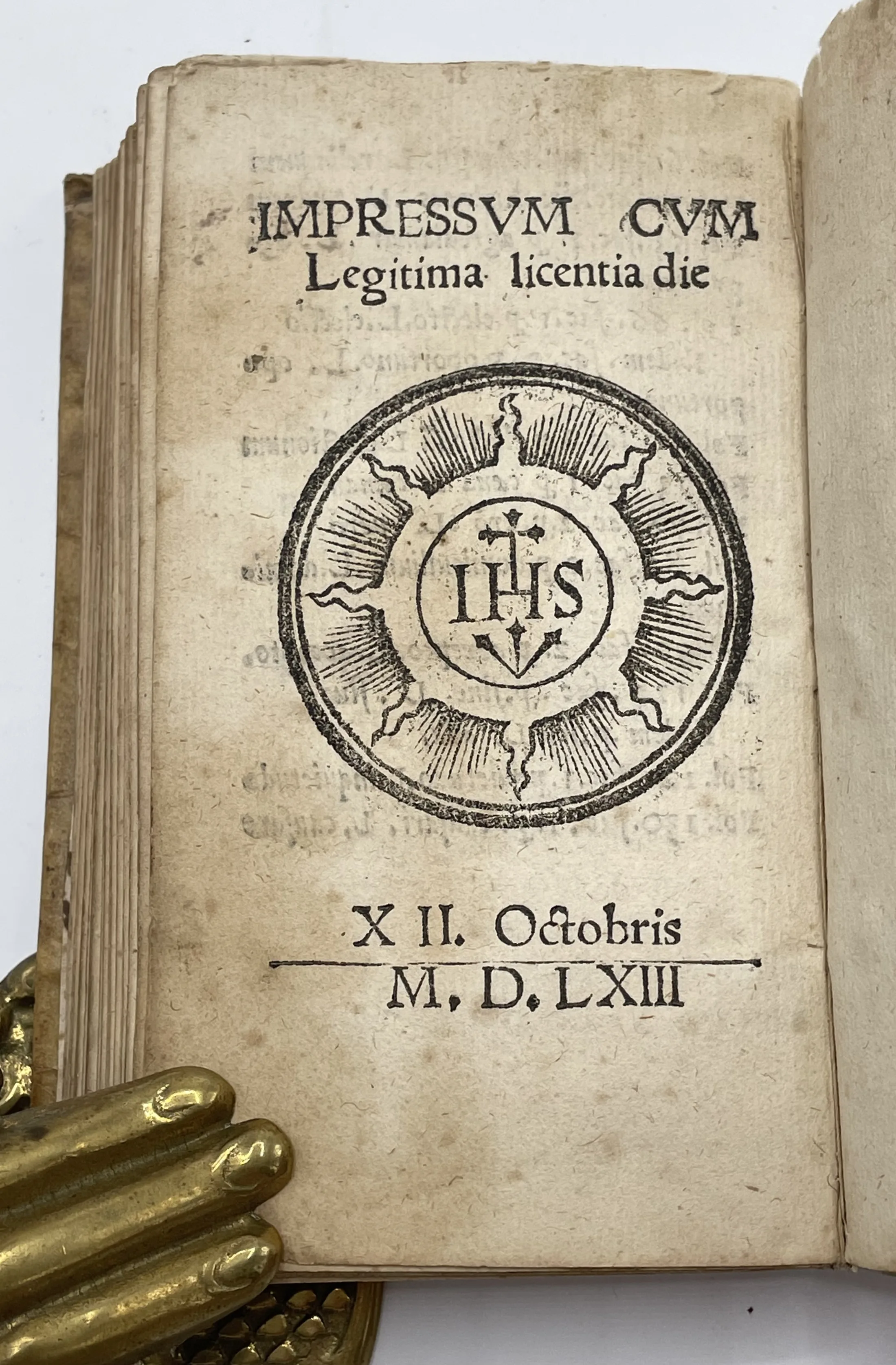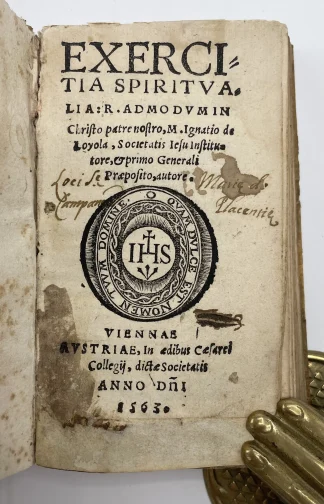DE LOYOLA, Ignatius
Exercitia Spiritualia.
Vienna, in aedibus Caesarei Collegii., 12 October 1563£19,500.00
12mo. ff. 141 [1]. Italic letter, some Roman. Woodcut Jesuit devices to t-p (lower blank margin anciently restored and verso of last), former flanked by early ms. ex libris of the church of Maria Placentia. Contemporary ms shelf mark to verso of t-p and mathematical note to front pastedown. Unusual decorative woodcut initials throughout, diagram of days of the week to D1. Very slight age yellowing, occasional light, mostly marginal foxing. A good, well-margined copy in contemporary vellum, early title and shelf mark inked to spine.
Uncommon third edition, pocket-sized, of ‘the most famous modern textbook on ascetic discipline, the nature of sin and Christian perfection by grace’ (PMM), published within a decade of its author’s death. Born a member of a noble Basque family, Inigo Lopez de Recalde (later known as Ignatius de Loyola, 1491-1556), decided to do penance for his sins, following a leg injury fighting the French at Pamplona in 1521. The following year, he retreated to Montserrat and Manresa, where he wrote his first draft of the ‘Exercises’, continually making additions until 1535. Between 1524 and 1530, he travelled extensively as he studied to become a priest, visiting Rome, Paris and England, and was eventually ordained in 1537.
The work provides a guide for prayer, meditation and contemplation set within a cycle of 28 to 30 days. Its aim was to support its readers in discerning good from bad in order to determine the will of God in their lives and strengthen their commitment to follow Jesus. It became the foundational text for the Society of Jesus, also known as the Jesuit Order, who, led by de Loyola, introduced many innovations to Christian worship. This included the ‘abandonment of chanting the divine office, a monarchical rather than collegiate constitution and much simpler vows’. The text was hugely controversial but was eventually approved by Pope Paul III in 1548, to whom the book is dedicated. It soon became the handbook of the Society of Jesus, which devoted itself to educational, missionary and other active works. The Exercitia ‘gave the Order its militant character and enabled it to exercise its great influence on the world. As a work of religious inspiration, the impact of the ‘Exercises’ has been almost as great outside the Society of Jesus as within’ (PMM). Though originally composed in Spanish, it was first published as a Latin translation, which remained the official version until the 20th C.
‘A unique book, inspired by a remarkable fixity of purpose and designed for a clearly defined and practical end: the moulding of character by the precepts of the Gospels’. (Printing in the Mind of Man: p.44-45)
USTC: 655313; ed. not in Adams.In stock


